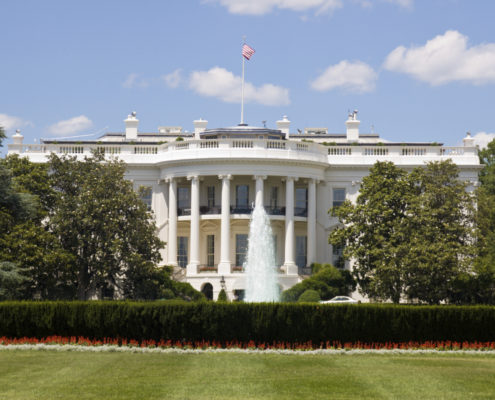
Remarks at 25th Anniversary Event for the Massachusetts Education Reform Act
0 Comments
/
Massachusetts Education Reform Act co-author and former Senate President Tom Birmingham praised the historic success that has been achieved since the law was enacted in 1993, but expressed concern that the Commonwealth is veering away from basic principles of the law that produced that success at a State House event marking the 25th anniversary of the Education Reform Act.

Transcript: Why Huck Finn Matters: Classic Literature in Schooling
I have heard, read, or seen these statements within the last year. What fascinated and concerned me then and continues to fascinate and concern me today is the level, the preponderance, and the consistency of this vitriol. I have come to a singular conclusion: race continues to be a primary way many people construct, deconstruct, and understand meaning in our country today. Race and the role it plays in America's history continue to impact every individual, everyday.

Lessons for Education Policy Makers
I've known E.D. Hirsch for some years, having spoken on the same programs with him on a number of occasions. I have the greatest respect for Professor Hirsch's work and am happy to consider him a friend. Professor Hirsch is the author of several books including the seminal work Cultural Literacy and most recently, The Making of Americans: Democracy and Our Schools, where he makes the case that a paramount goal of American public education is to produce sentient human beings capable of participating as intelligent citizens in a democracy.

Dumping the Know-Nothing Amendments
I'm pleased to be here this morning. I'd like to thank Pioneer Institute for hosting this event, as well as the co-sponsors, including the Parents Alliance for Catholic Education, the Becket Fund, the Black Alliance for Educational,Options, and Harvard's Program on Education Policy and Governance.

The Sacred Fire of Liberty
I want to start by thanking Jim, Jamie, and the Democrats for Education Reform (DFER) for having me today. I'm a board member at DFER, so perhaps they didn't have any choice, but I'm grateful to Pioneer for the opportunity. And on behalf of Joe Williams, greetings.

Keep Moving: Transportation Reforms Beyond Revenues
Massachusetts has seen dramatic changes in the transportation landscape over the last two years. Major reforms have been enacted to restructure how transportation assets are managed and bring efficiencies to the system. With these major changes, many observers view transportation reform as 'done' and much of the attention to transportation reform has ebbed away. To keep the conversation moving, Pioneer and the Center for Strategic Studies at the College of Business at Northeastern University sponsored a forum in May of2010 to bring together some of the innovators in transportation strategic thinking.

Core Academic Knowledge
Thank you for being here today and caring enough about this important and timely issue. I’m here as the warm up act to the main event; here to introduce Professor E.D. Hirsch and to provide some Massachusetts context to our ongoing discussion about the nature and level of expectations to which we can appropriately hold our public school students.

Driving Questions
This discussion forum was organized around the release of Northeastern University Professor Joseph M. Giglio’s latest book, Driving Questions: Developing A National Transportation Vision, which raises important strategic questions about the planning and funding of the transportation system in Massachusetts.

Presidents, Politics and Supreme Court Appointments
Ladies and gentlemen, good evening. I’m Diane Schmalensee, Chairperson of the Pioneer Institute, and I’m delighted to welcome you to the 8th Annual Lovett C. Peters Gala and Public Policy Lecture.

Has Education Reform Stalled in Massachusetts?
To Pioneer Institute, let me say thanks for hosting what really is a very timely event. Let’s cut right to the chase. The bloom is off the rose of education reform. If by hosting events such as this, you can re-invigorate and re-inject the enthusiasm that heretofore had characterized our efforts to improve our public schools, you will be performing a great public service. So, Pioneer Institute, thank you very much for getting us to focus on this issue.

A Blueprint for the Future
Massachusetts is the first state to require that individuals purchase health insurance, and the first to propose a “Connector,” or state-mandated health insurance market for consumers and small businesses. As part of the well-regarded Colby Hewitt Health Care Series, Pioneer held “A Blueprint for the Future” featuring an in-depth presentation by Health and Human Services Secretary Tim Murphy, as well as presentations by two nationally recognized health policy leaders: Professor Regina Herzlinger of Harvard Business School and John Goodman, President of the National Center for Policy Analysis. Biographies of the presenters and the moderator, Susan Connelly of Mercer Consulting, can be found on the last page of this transcript.

Technology and Innovative Finance
This event featured a keynote address by Joseph Giglio, entitled "Rethinking Mobility for the New Century." Professor Giglio is Executive Professor for General Management at Northeastern University, author of a new book entitled Mobility, a Board Member for Pioneer Institute’s Shamie Center for Better Government, and Vice Chairman of the Hudson Institute.

Water Management and the MWRA
On Friday, April 28, 2006 Pioneer Institute and the Clean Water Council held a forum on the issue of MWRA’s potential expansion as a water supplier for more communities. The issue is significant because of its what it means to the environment, development and the cost of water for millions of residents in Massachusetts. The forum featured a panel including: Mary Griffin, General Counsel, Executive Office of Environmental Affairs; Peter Hechenbleikner, Town Manager, Town of Reading; Fred Laskey, Executive Director, Massachusetts Water Resources Authority; and Mark P. Smith, Director, Eastern U.S. Freshwater Program, The Nature Conservancy and former Water Policy Director, EOEA.

School Choice and Education Reform in Massachusetts
On Tuesday, January 31, 2006, Pioneer Institute held an event entitled “School Choice and Education Reform in Massachusetts: Competing in the 21st Century,” featuring a presentation by Chris Whittle, CEO/President of Edison Schools. “School Choice and Education Reform” is part of Pioneer Institute’s ongoing mission to present ideas, lectures, and experts on topics of significance to the Commonwealth, and to the country.

Creating Successful Schools
Angus McBeath was Superintendent of Schools in Edmonton, Alberta, until October 2005. He is currently a Visiting Scholar at the Atlantic Institute of Market Studies in Halifax. We are indebted to AIMS for making Mr. McBeath available to us.

Urban School Reform: A Case Study
Frederick (Rick) Hess, an education scholar at the American Enterprise Institute, led a team of experts in evaluating a seven-year comprehensive reform of the San Diego school system. He presented the team’s findings at Pioneer Forum June 9, 2005. The Forum also included remarks by Nonie Lesaux, an assistant professor at the Harvard Graduate School of Education and one of the San Diego review team members, and Thomas Payzant, Boston schools superintendent, who once served in the same capacity in San Diego. Excerpts of all three participants’ remarks follow.

Rescuing Students in Chronically Underperforming Schools
As a follow-on to Peters Paper #2 titled “Rescuing 16,101 Drowning Students,” Pioneer Institute brought Harvard education scholar Paul E. Peterson to a standing-room-only Pioneer Forum on March 30, 2005, to outline his ideas of what might be done to rescue the 16,101 students in 25 Massachusetts schools that have failed to make “adequate yearly progress” in any of the last six years.

Preeminence in Peril: Bolstering Science and Math Education
The 2004 Lovett C. Peters Lecture in Public Policy focused on the disturbing gap in the number of science, technology, engineering, and mathematics graduates that the United States turns out compared to other nations. Robert J. (Bob) Herbold, (pictured at right), a retired Microsoft official and chair of the President’s Council of Advisors on Science and Technology’s Workforce/Education Subcommittee, argued the situation threatens our nation’s position as the world’s industrial leader and requires immediate action to strengthen science and math education in our schools— including instituting merit and differential pay for teachers in such subjects. An edited transcript of his remarks follows.

Common Sense School Reform
At a Pioneer Forum held March 18, 2004, Frederick (Rick) M. Hess, the author of a new book titled Common Sense School Reform, outlined his prescriptions for making schools more effective. Respondents were Mark Roosevelt, managing director of the Massachusetts Business Alliance for Education and an architect of the Commonwealth’s 1993 Education Reform Act, and David P. Driscoll, Massachusetts’ commissioner of education. The discussion was moderated by Charles Glenn, professor of educational policy at Boston University. Excerpts of each speaker’s remarks follow.

Perspectives on the “No Child Left Behind” Law in Massachusetts
The federal No Child Left Behind (NCLB) Act of 2001 sets forth reforms in the public education system to spur academic improvement. It allows parents with children in schools that do not meet certain standards to transfer their children to schools within the same district that do meet performance standards. What has been the response so far in Massachusetts? At a February 12, 2004 Pioneer Forum, Harvard government professor William G. Howell presented the results of a Pioneer-commissioned statewide parental survey. Local school district and national perspectives were offered by, respectively, Joseph Burke, Springfield’s school superintendent, and Michael Sentance, New England regional representative for the U.S. secretary of education. Excerpts of each speaker’s remarks follow.

Massachusetts’ Privatization Law: Necessary Guardrail or Roadblock to Competition?
Massachusetts is home to the most restrictive state privatization law in the nation. Since the so-called Pacheco law was enacted in 1993, only six state services have been contracted out to private service providers, while similar efforts have dramatically expanded in other jurisdictions. A Pioneer Forum on competitive contracting was held to mark the release of a new White Paper “Competition and Goverment Services: Can Massachusetts Still Afford the Pacheco Law?” Speakers included two co-authors of the paper, Geoffrey Segal and Adrian Moore of the Reason Public Policy Institute, Senator Marc Pacheco, author of the law, John Parsons, general counsel and director of privatization for the state auditor’s office, and Charles Chieppo of Pioneer’s Shamie Center for Restructuring Government. The remarks of each are excerpted below.

A Judicial Declaration of Independence
Judge Dolan discussed his findings at a recent Pioneer Forum, with commentary by attorneys Edward P. Ryan, Jr., immediate past president of the Massachusetts Bar Association, and David Steelman of the National Center for State Courts, a management consultant to courts around the country. The remarks of each are excerpted below.

MBTA Capital Spending: Derailed by Expansion?
Pioneer Institute partnered with the Massachusetts Taxpayers Foundation on a study finding the MBTA cannot afford any of its planned expansion projects without additional state funding. Speaking at a forum on the study’s release were Michael Widmer, MTF president; Charles Chieppo, director of the Shamie Center for Restructuring Government at Pioneer; Thomas Finneran, speaker of the Massachusetts House of Representatives; James Scanlon, the Commonwealth’s acting secretary of transportation; and David Luberoff, associate director of the Taubman Center for State and Local Government at Harvard’s Kennedy School of Government. The remarks of each are excerpted below.

Of Markets, Government, Lawyers, and Freedom
ABC News correspondent John Stossel delivered the keynote address at Pioneer Institute’s 2001 Better Government Competition Awards Dinner. Best known for his “Give Me a Break” segment on the ABC news magazine program “20/20,” Stossel also produces prime-time specials; one of his most recent was a consumer report on government. The Dallas Morning News has called Stossel, the winner of 19 Emmy Awards, “the most consistently thought-provoking TV reporter of our time.” Excerpts of his remarks are printed below.

Civic Education in Massachusetts: Preparing Students for Citizenship
A recent Pioneer Institute White Paper examined the state of civic education in Massachusetts, comparing the performance of district, charter, and private— including parochial and secular private—schools in preparing students for responsible citizenship. To mark the study’s release, Pioneer sponsored a Forum with the author, David Campbell, a research fellow at Harvard University’s Program on Education Policy and Governance. Commentary was provided by former Congressman Mickey Edwards, John Quincy Adams lecturer in legislative politics at Harvard’s Kennedy School of Government; Jay Greene, senior fellow of the Manhattan Institute; and Diane Palmer, Massachusetts coordinator of “We the People” Center for Civic Education. The remarks of each are excerpted below

Increasing Security Without Sacrificing Freedom
Former U.S. Senator Bob Kerrey, scheduled to deliver the 2001 Lovett C. Peters Lecture in Public Policy on ethics and integrity in government, instead used the occasion to address a topic that weighed most heavily on the minds of his audience—the terrorist attacks that had occurred less than a month earlier.

Build More or Manage Better? Subsidized Housing in Massachusetts
A recent Pioneer Forum titled “Build More or Manage Better? Subsidized Housing in Massachusetts” marked the release of a Pioneer White Paper of the same title. The paper’s co-author, Howard Husock, director of case studies at Harvard’s Kennedy School Government, summarized the study’s findings. Commentary was provided by Thomas M. Finneran, speaker of the Massachusetts House of Representatives; Aaron Gornstein, executive director of Citizens’ Housing and Planning Association; and Sandra B. Henriquez, administrator of the Boston Housing Authority. The remarks of each are excerpted below.

Expanding Economic Opportunity in Boston
In connection with the release of a four-city study on urban entrepreneurship, Boston City Council President Charles Yancey addressed a recent Pioneer Forum on steps the city government can take to foster small business development in city neighborhoods. The study, produced by the Reason Public Policy Institute in conjunction with Pioneer and two other think tanks, was directed by Sam Staley, Director of Reason’s Urban Futures Program, who also spoke at the Forum, outlining the scope of the study and its findings. The remarks of both speakers are excerpted below, beginning with Staley’s overview.

The Power To Take: A Primer on Eminent Domain
Pioneer Institute recently issued a White Paper examining its use in the Commonwealth. In conjunction with the Federalist Society, Pioneer held a Forum featuring the paper’s author, Michael Malamut of the New England Legal Foundation. Also speaking were Gideon Kanner, professor of law emeritus at Loyola University and a national authority on eminent domain; Jason Barshak, who as an Assistant Attorney General has defended the Commonwealth in civil ligitation stemming from eminent domain takings; and James Masterman, an attorney in private practice specializing in eminent domain cases. The following excerpts each’s remarks.

Services for Urban Microentrepreneurs
A recent Pioneer conference on “Microenterprise in Boston: Building the Entrepreneurial City of the Future” included a panel discussion on the range of services offered to microentrepreneurs by various support organizations. Providing a framework for the discussion, John Friar of the Entrepreneurship Center at Northeastern University, conference co-sponsor, spoke of the role of microbusinesses in the economy. Michael Caslin, CEO of the National Foundation for Teaching Entrepreneurship, offered concluding thoughts on the value of entrepreneurship in terms of individual and societal betterment. The remarks of each are excerpted below, followed by a look at the participating organizations and the services they provide.
